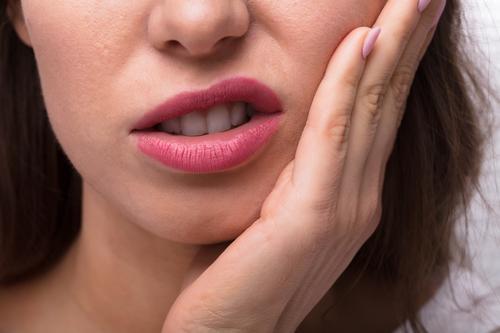
8 Origins of Tooth Pain That Don’t Involve a Cavity


From a cavity to infected gums, a tooth can have a lot of (sometimes surprising) causes. Whether your toothache feels dull and achy or sharp and throbbing, a toothache can make it hard to maintain your daily routine. This general guide will outline some of the possible reasons you are experiencing tooth pain.
You Have a Cavity
A cavity is a small hole in a tooth that is caused by tooth decay. When harmful acids eat away at the hard outer layer of your teeth, called enamel, it weakens your tooth allowing cavities to form. At first, a cavity might not cause you any symptoms. Eventually, pain and discomfort can begin if the cavity gets large and close enough to the nerves inside the tooth. Even a minor toothache should not be ignored as a cavity can quickly increase in size and create a larger-scale dental issue.
You’re Exercising Too Much
While exercising regularly is great for your body and your mind, over-exercising could be the reason behind your tooth pain. Researchers have found that triathletes who did endurance training had a higher risk for tooth erosion when compared to people who didn’t exercise. A loss of enamel due to acid on the teeth can lead to multiple cavities and is thought to be due to a lack of saliva while exercising.
A Filling Fell Out
A dental filling can fall out if too much force is applied to the area or if the material of the filling breaks down. Decay around or under a filling can also cause a filing to break. Some patients may not even feel something missing until they bite down. A crack in a filling can allow food to get pushed into the area as you chew, leading to sensitivity and discomfort.
You Have an Abscess
When food particles are jammed between your teeth, and you keep chewing, you push the food farther into the gums. Over time, these lingering particles of food and debris will decay, breeding infection. The sooner you are able to get an abscess treated the better, as an untreated abscess can lead to gum disease.
A Fractured Tooth
A crack or break in a tooth can cause a toothache. Often caused by biting on something hard, even a small fracture can lead to pain when you bite or chew. Depending on the severity of the break, you may need a crown or an implant to replace a severely damaged tooth.
Impacted Wisdom Teeth
Wisdom teeth attempting to emerge from your gums in an awkward position or without enough space will create tooth pain. Once broken through the gum tissue, impacted wisdom teeth form a higher risk of painful inflammation or infection in the gums. Impacted teeth are hard to reach with your toothbrush and floss creating an issue with correct dental hygiene practices.
You Grind Your Teeth
Most teeth grinding happens at night while you sleep and many of those patients do not even realize they’re doing it. Teeth grinding is also associated with symptoms such as headaches, pain in the facial muscles, and a stiff jaw. Grinding can also lead to broken teeth. Even if you are not a nighttime grinder, you could still be clenching your teeth during the day in stressful situations. Tooth pain from grinding or clenching will hurt all over, or at least all of one side of the jaw, rather than one specific tooth.
Your Gums Are Receding
Patients experiencing tooth sensitivity may look to gum recession as the culprit. Recessed gum tissue causes the enamel at the gum line to wear away, exposing the tooth to the elements and creating sensitivity. This type of pain does not linger, but rather popping up every time the hot or cold foods hit the tooth.
You Have a Sinus Infection
Experiencing an ache in your teeth while you have a bad cold could be related to your sinuses. The sinus floor sits right on top of the roof of your teeth, and full sinuses can cause pain in the upper teeth behind the eye. A quick way to determine if your sinuses are causing the tooth pain: If the pain isn’t limited to just one tooth. If your sinuses are causing the discomfort, several teeth in the area will be sensitive, not only one tooth.
There are many reasons why your teeth might hurt, but all of them are worth seeking professional help from Tompkins Dental. If something in your mouth doesn’t feel right, make an appointment with a dentist to treat your tooth pain before it becomes a serious issue.
You Might Also Enjoy...


The Right (and Wrong) Ways to Travel with Your Toothbrush

When Is the Best Time to Remove Wisdom Teeth?

How Better Nutrition Can Help Prevent Gum Disease

Transitioning from Pediatric to Adult Dental Care


